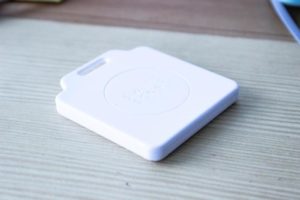 For years now, medical literature has warned that “the growing number of prompts may be counterproductive.” Indeed, alarm fatigue is a serious enough issue to rank among the top ten health technology hazards of 2020, according to medical safety firm ECRI Institute.
For years now, medical literature has warned that “the growing number of prompts may be counterproductive.” Indeed, alarm fatigue is a serious enough issue to rank among the top ten health technology hazards of 2020, according to medical safety firm ECRI Institute.
For these reasons, SwipeSense deliberately avoided alerts in the design of its product — a set of IoT “badges” that gather data on when healthcare workers disinfect their hands, and where nurses are making stops during their rounds, all geared toward driving better, safer habits.
Here’s how it works. The badges clip behind nurses’ ID cards during shifts and communicate with sensors outfitted onto hand sanitation dispensers; the badges can also attach to medical equipment, to help keep track of valuable (and expensive) devices. The data is transmitted in real time across a Bluetooth wavelength to the hospital’s cloud.
Beyond tracking hand-washing habits and assets, there are trickle-up advantages. Hospital operations staff can use the data to plug whatever holes are spotted in nurses’ rounds, thereby shoring up avoidable harm.
Artificial intelligence is also showing early promise in this area, according to a study published last year in the Journal of Medical Internet Research. Experimental results suggested that an AI “reasoning algorithm” developed by researchers — which determines if a collection of alarms should be aggregated before notifying caregivers — is useful in preventing alarm fatigue.
See the full story here: https://builtin.com/design-ux/iot-medtech-alert-fatigue-swipesense